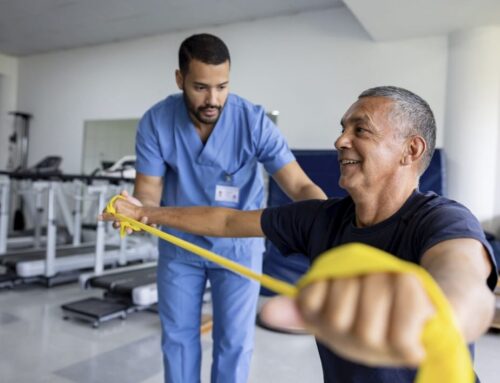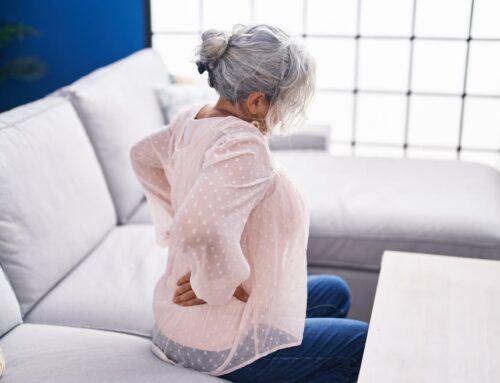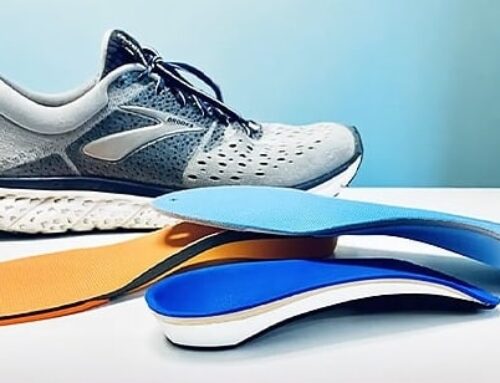Let’s talk about winter wellness. Cold weather can affect people both physically and mentally. From achy joints and frozen fingers to darker, quieter days, cold weather can be downright depressing at times!
More than half of adults with osteoarthritis report greater joint pain in cold weather. The shorter, overcast winter days chill people with increased weather sensitivity and can lead to seasonal affective disorder (SAD).
Cary Orthopaedics wants to take the chill off with some helpful tips on how to stay warm in cold weather.
People feel the cold more as they age
Are you feeling more sensitive to the cold? It isn’t just your imagination.
As people age, body temperatures trend cooler for several reasons. Aging bodies have less flexible and efficient blood vessels, thinner skin, lower muscle mass and slower metabolism. Underlying medical conditions, like anemia or heart or kidney disease, can also make people feel colder.
Those with joint pain may notice it more keenly during cold weather, especially in their weight-bearing joints, like knees, hips and ankles. Despite these normal changes in the body, there are many things you can do to reduce cold sensitivity and boost your winter wellness.
Layer your clothing
One of the easiest ways to feel warmer is to dress for the weather. During cold days, dress in light, warm layers of clothing. Start with an undershirt, then add a long-sleeved shirt and a sweater or sweatshirt on top. Wear a coat if you’re headed outdoors.
Layers of clothing act as insulation, keeping your body warm by trapping air between the layers.
Accessorize with intention
Use accessory layers to keep your body warmer, too. Scarves, hats, boots and ponchos are all stylish methods of dressing with warm layers. Don’t forget your mittens and wool socks to warm your hands and feet.
Winterize your home
Tick up your thermostat to quickly feel warmer. Set your thermostat to at least 68 to 70 degrees. Then, look for ways to keep the heat in and cold air out. Seal openings to the outside by weatherproofing your windows and doors. Consider adding insulated cellular shades to your windows, which can reduce heat loss by 40% or more.
An energy-efficient space heater will warm the room where you spend most of your time. Space heaters can add significant heat to a small area, and many newer models operate at relatively low cost. Always keep your space heater away from flammable materials or items, and turn it off when you leave the room.
Maintain your fitness
Exercise is an excellent way to stay warm when the temperature drops. Activating your muscles generates heat, so when you get cold, get up and move around. It’s an important part of your winter wellness regime.
Muscle loss contributes to feeling colder, too. Adults lose three to five percent of muscle mass every decade after age 30, but lifting weights and adding exercise to your routine will build more warmth-generating muscle.
Another toasty benefit of exercise comes from the increased blood flow, better lubricated joints and toxin-flushing that happens when you are active. Not only does exercise warm you up, but it also makes it easier for joints to move smoothly.
Choose warming foods
Did you know that what you eat can affect your body temperature? Soups, broths and warm beverages are a must for winter.
Spicy foods can also warm you up. Foods like jalapeño and habanero peppers cause the body to physically respond by heating it up. Some people even sweat when they eat spicy foods. If you have a history of acid reflux or ulcers, check with your doctor before adding spicy foods to your diet.
In general, healthy eating and maintaining a good weight are important throughout the winter. Thin people can struggle to stay warm because they lack the healthy body fat that serves as insulation.
Eating green vegetables like broccoli, mustard greens, spinach and kale can help warm your body this time of year. The iron from these vegetables helps with long-term management of anemia, which often makes people feel cold.
Consider limiting your alcohol consumption as well. While you may initially feel warmer when you drink alcohol, consumption actually decreases your body’s core temperature. It dilates the blood vessels near your skin’s surface, increasing circulation and causing heat loss.
Winter wellness and year-around health
Our orthopedic team cares about your overall wellness. We hope these winter-warming tips help you snuggle up for a cozy and healthful winter. And we’re always here to help if you experience any bone and joint pain or injuries.






